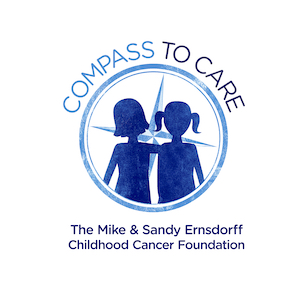Two summers ago, 15 year-old Kiersten Sharpe was a normal high school student, looking forward to her sophomore year at Ashe County High School in West Jefferson, North Carolina. One afternoon Kiersten came home from cheerleading practice and began randomly yelling at her mother about a persistent pain in her back before passing out. “She just collapsed, so I rushed her to the Emergency Room at Duke University Hospital,” her mother, Stephanie, said. Kiersten had previously complained about back pain, but her Primary Care Physician had brushed off the discomfort as aches, pains and pulled muscles, typical of high school athletes.
At the hospital, the medical staff thought Kiersten had a panic attack, but Stephanie’s mother’s intuition – and the fact that Kiersten collapsed two other times that same week – forced her to search harder for an answer. Stephanie wasn’t ready for the results of a spinal MRI scan when they came a few days later. “The doctors said they found a mass in Kiersten’s spine and that she needed to be seen right away,” she said. The doctors diagnosed Kiersten with ependymoma, a relatively rare form of cancer that attacks the cells in or near the spinal column. “When the doctors informed me of her diagnosis, I just thought, no, my baby girl has cancer. And I just sat there and cried.”
Within days, the pretty blonde-haired teenager was being prepped for surgery to remove the malignant tumor. Stephanie said the speed at which everything happened probably worked to her benefit. “We didn’t have time to worry or wonder ‘what if’.” The operation was successful and medical specialists assured Kiersten and her family that cancers of her type, rarely return. And for six months that appeared to be the case.
“Then in April, Kiersten was singing in the youth choir and she got up in the middle of singing,” Stephanie said. “I knew something was wrong and all of a sudden, she just fell. So I started running.” Further scans found a lesion inside Kiersten’s lumbar spine, lower than the first surgery’s target area. Doctors performed another successful operation in July 2015, but additional treatment was going to be necessary.
Kiersten would need an aggressive six-week course of proton radiation therapy. Her medical team decided to send Kiersten 510 miles, an eight-hour car ride, away from her North Carolina home to the Children’s Hospital of Philadelphia. The doctors felt this would provide the best treatment to carefully target Kiersten’s cancer.
The expense necessary to get this treatment was far too much for Kiersten’s family. Due to the other mounting hospital bills, Stephanie was under too much pressure and needed some help. It was then that her social worker referred Kiersten’s family to Compass to Care.
“Compass to Care was truly amazing!” Stephanie said. “When I heard that Compass to Care was going to provide us traveling expenses and help with our lodging arrangements, I was floored. My family and I could travel without the stress of how we will get to the hospital from one place to another. Compass to Care made it possible for Kiersten to get to the treatment that could change her life for the better.”
 Travel support funding, for children receiving proton therapy, is generously provided to Compass to Care by Ion Beam Applications S.A. A global medical technology company, IBA is focused on bringing integrated and innovative solutions for the diagnosis and treatment of cancer. IBA is the worldwide technology leader in the field of proton therapy, the most advanced form of radiation therapy available today. They are committed to making proton therapy accessible to more patients worldwide. Their support of the mission of Compass to Care is proof of that commitment.
Travel support funding, for children receiving proton therapy, is generously provided to Compass to Care by Ion Beam Applications S.A. A global medical technology company, IBA is focused on bringing integrated and innovative solutions for the diagnosis and treatment of cancer. IBA is the worldwide technology leader in the field of proton therapy, the most advanced form of radiation therapy available today. They are committed to making proton therapy accessible to more patients worldwide. Their support of the mission of Compass to Care is proof of that commitment.
